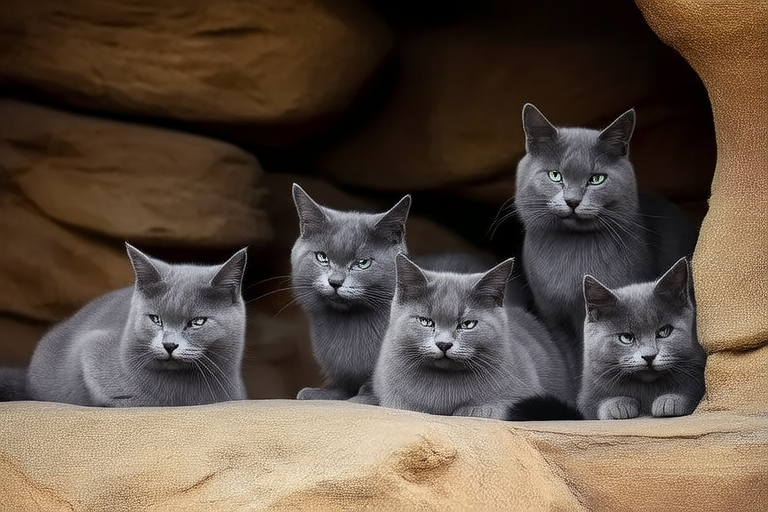Top 5 Myths About Chinchillas Debunked!
Chinchillas are adorable, fluffy creatures that have captured the hearts of many pet enthusiasts. However, there are several myths surrounding these small mammals that can lead to misunderstandings about their care and needs. In this article, we will debunk five common myths about chinchillas, providing accurate information to help you understand and care for these delightful pets.
Myth 1: Chinchillas Don’t Need Dust Baths
What the Myth Is: Some believe that chinchillas don’t need dust baths because they are clean animals and can maintain hygiene without them.
Why It’s Inaccurate: This belief is incorrect and potentially harmful to chinchillas. Dust baths are essential for chinchillas’ health and well-being. Chinchillas have very dense fur, which makes them prone to oil buildup and skin issues if not properly maintained.
Factual Information: Chinchillas require regular dust baths to keep their coat clean and healthy. The fine volcanic ash used in dust baths helps absorb excess oils from their fur, preventing skin problems and maintaining their luxurious appearance. According to the American Chinchilla Society, chinchillas should be provided with dust baths two or three times a week, lasting no more than 10-15 minutes each time.
Practical Tips: Ensure you have a proper dust bath container that is easy for your chinchilla to access and that allows for thorough rolling around. Choose high-quality dust specifically formulated for chinchillas, as some products may contain additives that could harm them.
Myth 2: Chinchillas Can Be Handled Freely Like Rabbits
What the Myth Is: There is a misconception that chinchillas can be handled like rabbits, meaning they can be picked up and cuddled freely without much training.
Why It’s Inaccurate: Chinchillas have delicate bones and are not naturally inclined to be held or petted like other small animals such as rabbits. Their wild nature means they are more likely to jump or bite when feeling threatened.
Factual Information: Chinchillas are prey animals, which means they are naturally skittish and prefer to be left alone rather than handled frequently. Handling should be done gently and only after the chinchilla has become comfortable with its environment and handler. The Humane Society advises against handling chinchillas too roughly or for extended periods, as this can cause stress and injury.
Practical Tips: If you wish to handle your chinchilla, always approach it calmly and allow it to come to you. Use both hands to support its body, ensuring it feels secure. Limit handling sessions to short durations and avoid sudden movements that might startle your pet.
Myth 3: Chinchillas Require Cold Temperatures to Thrive
What the Myth Is: It’s often thought that chinchillas thrive in cold environments, similar to their native habitat in the Andes mountains.
Why It’s Inaccurate: While chinchillas do originate from cooler climates, they are sensitive to extreme temperatures, especially heat. Keeping them in overly cold conditions can also be detrimental to their health.
Factual Information: Chinchillas are highly susceptible to overheating, which can lead to heatstroke, a life-threatening condition. They should be kept in environments where the temperature does not exceed 75°F (24°C) and ideally stays between 60-70°F (15-21°C). The Chinchilla Health Guide recommends providing plenty of ventilation and ensuring the living area is free from drafts and direct sunlight.
Practical Tips: Equip your chinchilla’s cage with a fan or air conditioning unit during warmer months to ensure a constant, comfortable temperature. Additionally, provide ample shade and water bowls to help your chinchilla stay cool. Avoid placing the cage near windows or heat sources like radiators.
Myth 4: Chinchillas Are Low-Maintenance Pets
What the Myth Is: There’s a perception that chinchillas are low-maintenance pets, requiring minimal attention and care.
Why It’s Inaccurate: Chinchillas have specific dietary, environmental, and social needs that require careful attention. Ignoring these needs can lead to health issues and a less-than-ideal quality of life for your pet.
Factual Information: Chinchillas need a balanced diet rich in hay, pellets, and occasional treats like fresh vegetables. They also require a spacious, stimulating environment with plenty of toys and hiding spots to mimic their natural habitat. Social interaction is crucial for their mental well-being, so consider adopting a pair of chinchillas if possible. The National Chinchilla Association emphasizes the importance of regular veterinary check-ups to monitor your chinchilla’s health.
Practical Tips: Invest in a large, multi-level cage that provides ample space for exercise and exploration. Offer a variety of safe chew toys to prevent boredom and promote dental health. Regularly rotate toys and rearrange the cage layout to keep things interesting for your chinchilla.
Myth 5: Chinchillas Are Noisy Pets
What the Myth Is: Another common myth is that chinchillas are noisy pets, making frequent loud noises throughout the day and night.
Why It’s Inaccurate: While chinchillas can vocalize, they generally do so quietly and infrequently. Compared to other small pets like hamsters or guinea pigs, chinchillas are relatively quiet.
Factual Information: Chinchillas communicate through soft chirps, squeaks, and purrs. These sounds are usually subtle and not disruptive to most households. The Chinchilla Care Handbook notes that chinchillas are most active during dusk and dawn, which can sometimes coincide with human sleeping hours, but their activity level is typically low-key.
Practical Tips: To minimize any potential disturbance, place the chinchilla’s cage in a quieter part of the house, away from bedrooms. Provide a cozy sleeping box lined with soft bedding to encourage restful sleep. Understanding and respecting your chinchilla’s natural behavior patterns will help you manage expectations regarding noise levels.
In conclusion, while chinchillas are charming and unique pets, they do come with specific care requirements that must be understood and respected. By debunking these five common myths, we hope to equip you with the knowledge necessary to provide your chinchilla with a happy, healthy, and fulfilling life. Remember, responsible pet ownership involves ongoing education and adaptation to your pet’s needs. Happy chinchilla keeping!
